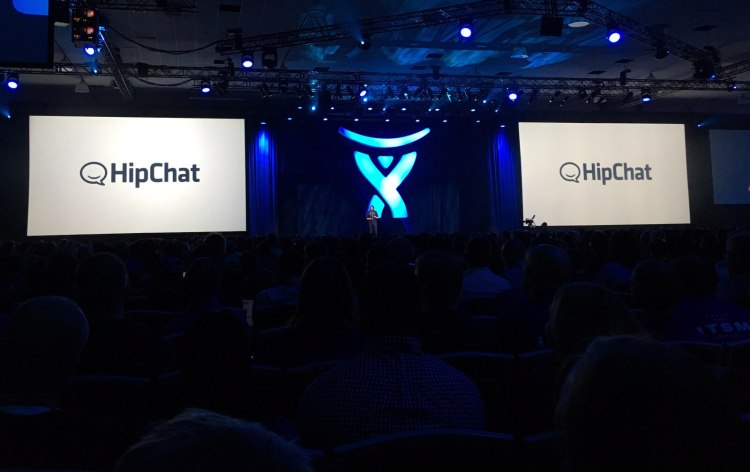Slack is well on its way toward total workplace domination. The company today announced that it has acquired Hipchat and Stride, two workflow productivity apps designed for large enterprises, from Sydney, Australia-based company Atlassian.
“Slack and Atlassian have worked closely together for many years, and Atlassian’s tools, including Jira, Trello, and Bitbucket have already been installed by hundreds of thousands of Slack teams,” Slack chief product officer April Underwood said in a statement. “This deeper partnership exemplifies our shared belief that the world of enterprise software is moving to a model in which people are building their own technology stack with the highly specialized, interoperable tools that best suit their needs.”
As part of a strategic partnership, Slack will pay an undisclosed amount over the next three years for the intellectual property underlying Hipchat Cloud and Stride. Atlassian will continue to manage both products until February 15, 2019, at which point it’ll offer customers the option to migrate to Slack. (Organizations that have Hipchat installed on-premises will be able to use it for as many as two additional years.)
Atlassian has also agreed to make a “small but symbolically important investment” equity investment in Slack, Slack CEO Stewart Butterfield said in a series of tweets.
June 5th: The AI Audit in NYC
Join us next week in NYC to engage with top executive leaders, delving into strategies for auditing AI models to ensure fairness, optimal performance, and ethical compliance across diverse organizations. Secure your attendance for this exclusive invite-only event.
The deal we’re announcing today with Atlassian is pretty amazing. Indeed, I tried to fit it all in one (280 character) tweet but I just couldn’t do it. So, I’ll lay it out in a few. But first, I wanted to thank Scott, Mike, Jay and the team: incredible to work with you.
— Stewart Butterfield (@stewart) July 26, 2018
The deal will let Atlassian focus on project management products like Trello, Jira, and Bitbucket that have hundreds of thousands of joint customers and millions of users, Joff Redfern, Atlassian vice president of product management, wrote in a blog post.
“Even with this change, we are not abandoning our original vision,” he said. “We believe that this partnership is the best way to advance our mission to unleash the potential of every team. And it will allow us to improve our focus in other areas, including expanding our offerings for technical and IT teams. Hard choices help us reflect on what’s most important to us — our customers, our employees, our mission.”
Atlassian positioned Stride, which launched in September 2017, as an evolution of Hipchat. It, like Slack, offered video and audio conferencing and project-tracking features.
But Stride failed to make headway against competitors like Microsoft’s Teams platform, Google’s Hangouts Chat, and Facebook’s Workplace. Just this month, Microsoft introduced a version of Teams that is free for the roughly 135 million people who subscribe to its Office 365 platform.
Slack and Atlassian have worked closely together for “years,” Underwood noted in a blog post, and many of Slack’s customers — including teams at Autodesk, CapitalOne, Liberty Mutual, and Nasa’s Jet Propulsion Laboratory — use Atlassian’s suite of tools.
Hipchat and Stride make up a “single digit” percentage of the enterprise messaging market, according to Butterfield. He told Bloomberg that Slack counts more than 500,000 organizations among its active users.
Update at 5:25 p.m. Eastern: Added a statement from Slack.

